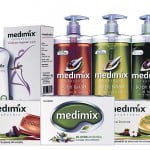Constantly being in the media glare in my present job is not one of my most favourite things – the business papers, parliament questions or the hyperactive trade media, it can all be quite a strain. However, I do realise that in business to business (B2B as the trade calls it) businesses, this is a common and in fact pretty important part of one’s daily job. What about the consumer business? Given the interconnected world we live in today, do they face the same attention? Unfortunately, the answer is yes (of course there are many who relish the attention and for them the media spotlight is a welcome addition to their lives, but then that is not the nub of this column)
I know several CEOs of large consumer businesses – consumer products, durables or even financial products in India – who typically tend to be shy and are often not visible in the media. They never let the media peek behind the curtain that they assiduously draw around themselves. The customer, they point out, is not buying the brand because of the CEO and hence justify their staying out of the limelight.
The conviction that drives CEOs to focus on the product rather than the individual led me to find out if consumers were really indifferent to the CEOs of companies whose products they buy? This does not seem to be true for all. Take Apple, Tesla, Facebook, Virgin or even Google. These are all popular consumer brands, coveted by millions, if not billions of consumers across the world. None of the above-mentioned brands advertise much, a well-known fact. But the charisma and personality of their CEOs sells and how.
Steve Jobs is ‘God’ to many and Apple is as much of a cult brand as is Harley Davidson. Loyalists buy all their latest products hot off the shelves (disclaimer – yours truly is one such). There are many who are waiting for Tesla to arrive. Take the case of Richard Branson – his personal brand is so huge that all that he has to do is ride an elephant and the media has him splashed all over. After he did this in India, a typical Branson performance, Virgin did not need to advertise much for the launch of its airline services.
I have been personally associated with business media brands where Bill Gates or Craig Barrett would speak to an audience of around 400 CEOs in a South Mumbai hotel and the media coverage was such that the brands (Microsoft or Intel) could safely cut down on communication spends thereafter for six months! Elon Musk walks a similar road when he says or implies that a top tech company recruits his rejects, which he then retracts or softens in his tweets. The kind of chatter that he creates thereafter is immense to say the least.
Of course all such CEOs follow carefully crafted images and stick to their PR teams’ briefs on using the right words multiple times as part of their communication objectives. Some get biographies written or films made with precise image and communication objectives in mind. Scribes love them, readers and viewers lap up every word they speak and of course consumers just love them and their products. The more these CEOs build their brands, the more the company benefits.
So who is right? Are those who abhor the spotlight justified in their attitude, or are they doing their organisations a disservice? If they were not as shy and were trained orators, would their brands need to spend less on advertising? As it is with such questions, there are no direct answers, but then that is the way of the world of brands, where rarely does one size fit all.





